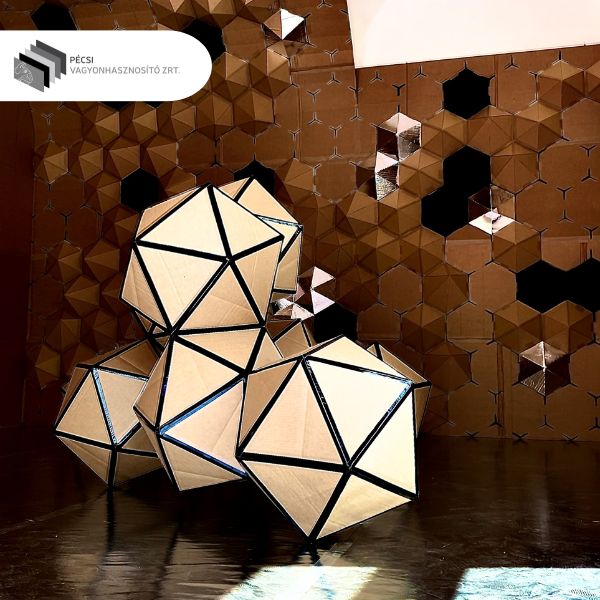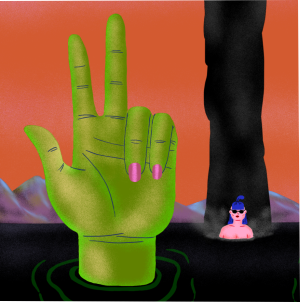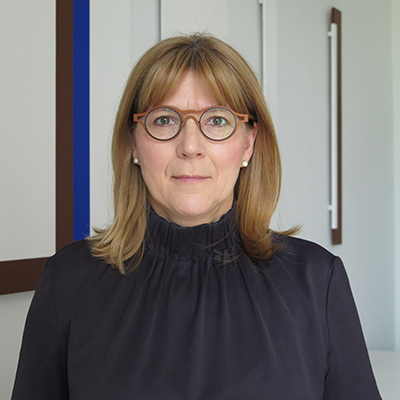
Commercial real estate in a new look
We are unique in that our portfolio includes nearly 300 city centre shops,
offices, shops, restaurants, cafés and catering outlets, and
other properties, which are important and emblematic places of Pécs
is.
Zsolt Kozma is an art writer, the artistic director of Inda Gallery and since 2017 the founding director of the Brussels-based exhibition and cultural project organisation Art of Care. He was asked about his curatorial work at this year's LOKART and about Pécs.
This is not the first time you have worked to put Pécs on the world art map. When and how did you start?
Yes, I had the honour of attending the event that was planned for 2020 but was postponed to the summer of 2021 due to the Covid virus. The jury was composed of Zsolt Petrányi, Head of the Department of the Historical Collection of the Hungarian National Gallery and András Nagy, Head of the Department of Museology of the Janus Pannonius Museum. But this was only the icing on the cake, as we had already started consulting with Zsolt Petrányi and Valeria Fekete to develop the concept of the first LOKART. I was motivated mainly by the fact that I could fully identify with the inventors' view that Pécs, both in its history and in its present, deserves a place on the map of contemporary art in Europe, and that the most effective means of achieving this, alongside the work of the art institutions operating there, is a festival held every year or two. There are many examples of this, such as the impact on the city's international reputation, cultural standing and tourism of the annual Ars Electronica in Linz, or the autumn all-arts festival in Graz. Building an annual or biennial international arts festival is a long process, the one before last was the first step and I am delighted to be working on the second.
It is also a great inspiration for me to present as wide an immersion of Hungarian contemporary art as possible to the Pécs audience. It is very important that people do not see art as a luxury item or some kind of esoteric, elitist phenomenon, but as their own, something that speaks to them. It is not a privilege, but a fundamental right.
What is your role in LOKART?
For this year's LOKART, together with curator László Százados and Valeria Fekete, we put together the majority of the exhibition programme - there were also projects brought by institutions and collaborating partners, i.e. projects that we get ready in the framework of a collaboration.
What do you expect the festival to be like?
I really hope that the audience will be able to discover and discover new things during the days of the festival and in the exhibitions that will continue to be on display after the event. The list of invited artists ranges from lesser-known names, introduced today, to young artists and stars. I hope that we have succeeded in inviting and then presenting work in a way that makes as many people as possible feel that they own it - and contemporary art in general.
From Brussels, how do you assess the situation of contemporary art in Hungary?
I'm in constant contact with the Hungarian scene, and that's how I get a sense of the wealth of talent in the Hungarian scene. The huge difference is in the visibility and support of these talents locally and internationally, obviously due to economic and cultural policy priorities and, related to these, to the access of visual education to a few. This is why events like LOKART are so important.

We are unique in that our portfolio includes nearly 300 city centre shops,
offices, shops, restaurants, cafés and catering outlets, and
other properties, which are important and emblematic places of Pécs
is.

Back to other blog articles New Taxonomy of Illusions - Animation and Digital Drawing exhibitionJúlia Farkas, Melinda Kádár, Zsuzsanna KreifSound installation by József Iszlai2023.06.21-09.07,

We asked Andrea Dénes, art collector and art patron, one of the jury members of LOKART, about the biennale, the city, its professional background, the jury's criteria and the Hungarian contemporary art scene.
about fine art.